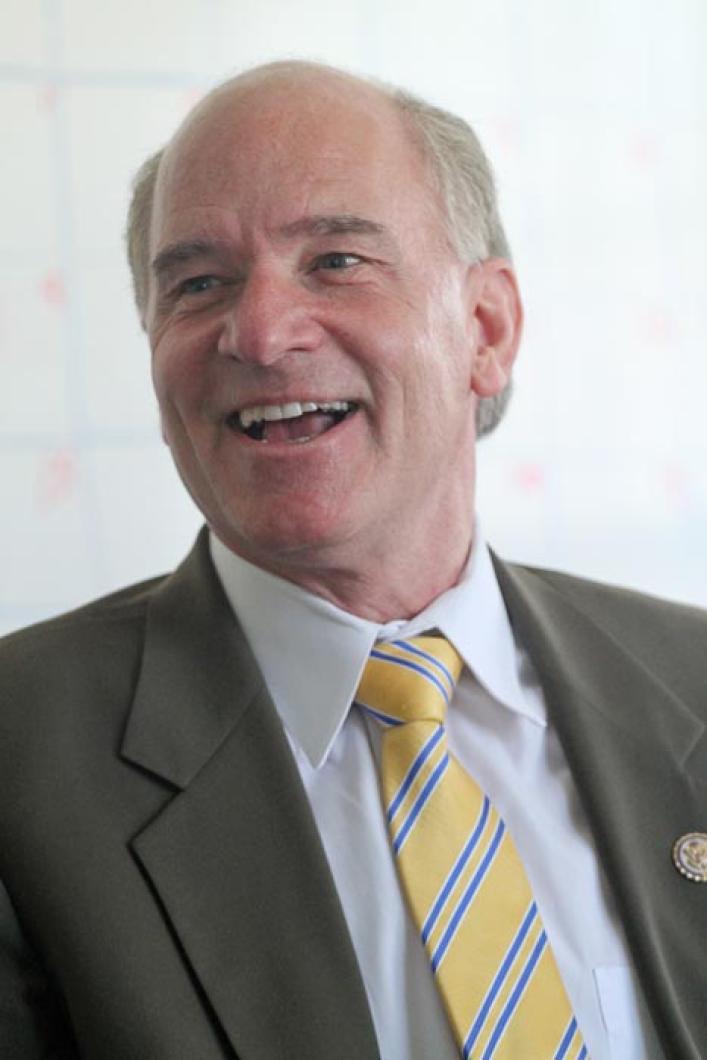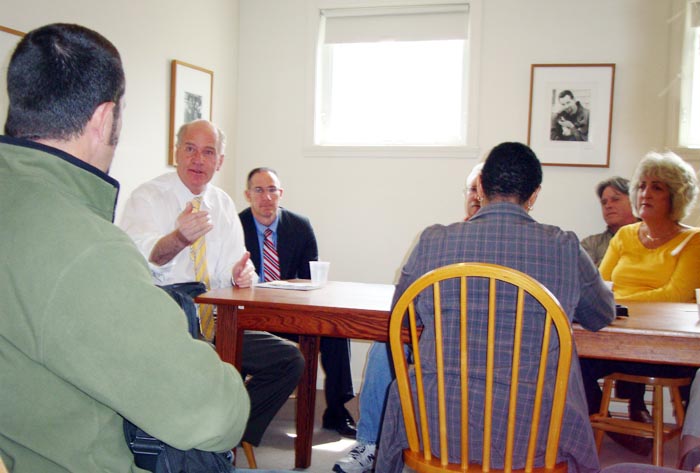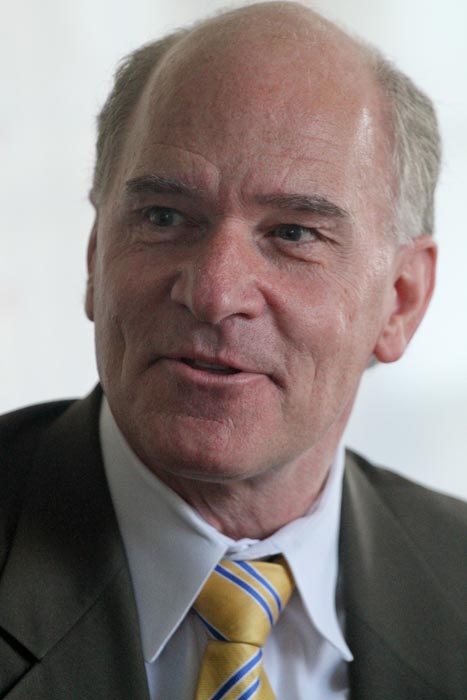The completion of the first 100 days has become an important milestone in the career of a politician. For freshman Cong. William Keating, it has seemed more like 1,000 days, with geopolitical, domestic and even nuclear crises coming in quick succession. For the past two weeks Mr. Keating has been catching his breath, meeting with constituents from Edgartown to Quincy, but on Sunday he was reminded that the world doesn’t wait. As he prepared to return to work in Washington, news came from his chief of staff that the grim legacy of 9/11 had been repaid in bullets in a sleepy Pakistani suburb. While the announcement was met with joy in some circles and uneasy relief in others, Mr. Keating’s first thoughts went back to that cloudless September morning.
“I was a district attorney and we were in the midst of what seemed to be a promising lead on a murder case and I was meeting with my police,” he said in a phone conversation on Tuesday.
Almost immediately his officers were summoned all over Boston on security details and airport assignments while the fog of uncertainty still hung over the country in the early hours of the attack.
“I know from my D.A. experience that bin Laden’s death is not going to be closure for the victims’ families because the loss is too permanent, too profound,” said Mr. Keating, who was appointed early this year to the Middle East subcommittee on the House Foreign Affairs Committee. “These are changes that you haven’t seen in centuries,” he said. “So to be part of that subcommittee, it’s like going to the Fletcher School for four years in 100 days. I’ve never learned so much so fast in my life.”
Closer to home Mr. Keating was also appointed to the committee on small business, an area of special importance to the Vineyard. In a conversation with the editorial staff at the Gazette last Friday, he outlined the difficulties facing would-be entrepreneurs.
“They’re getting the federal help through the Small Business Administration and they’re there with 90 per cent of the funding but they can’t get the other 10 per cent,” he said. “Venture capitalists won’t invest in anything that small and the banks won’t invest in anything that might be that risky. What used to happen to get off the ground for these really small businesses would be people would take an equity loan or a second loan on their home just to get going, and you can’t do that now because the equity in your house is gone.”
Although he said bluntly there are no easy answers for the current economic bind, he has been encouraged by the vibrancy of local economies in the district, particularly on-Island.
“On the Vineyard my eyes were really opened up last October when you had that terrific [Living Local] day,” he said. “That was great — 300 people showed up and the food was terrific. I want to get more involved in the sustainable foods issue at the national level because I think there’s tremendous benefit for our economies here in this district. We’re looking at tax credits right now where we can propel the effort. That was a great day.”
Later in the day at the Vineyard Housing Office, Mr. Keating met with representatives from Island town governments, the commission, housing authorities, clergy and the public at large about everything from the Vineyard’s affordable housing needs to the changing landscape of health care.
“It was a really high-level discussion and I walked out feeling great,” he said.
With Congress poised to revisit some of the major philosophical battles of the last century Mr. Keating is spoiling for a fight.
“These are grand issues,” he said. “We are at a point where the issues of Social Security, access to college and Medicare are in jeopardy.”
He took special aim at the Medicare voucher proposal of Rep. Paul Ryan, which he said will do nothing to address the cost of health care while leaving patients vulnerable to the profit motives of the insurance industry.
“I was astonished that it was advanced if you want to know the truth, because it’s so simplistic and so ineffective,” he said. “What do you say to people when the money runs out? Your voucher’s gone, what do you say? Good luck!”
In rural areas like the Vineyard, Mr. Keating said the focus should be on prevention and in promoting health centers.
But he is most exercised when discussing the oil subsidies for energy companies that he sought to do away with in the first amendment he put forward as a congressman.
“It’s an absolute giveaway,” he said. “It does absolutely nothing except give over $4 billion every year to the shareholders of oil companies.”
On other energy issues he was more ambivalent. About the development of wind energy he said, “It is just one piece of the pie,” and said he has been listening carefully to the concerns of Island fishermen on the subject. He said he recently signed a letter calling for a 60-day extension on the request for interest in federal waters south of the Vineyard opened to wind development. Fishermen have also registered their concerns with Mr. Keating about the slow pace of federal fisheries science, and he has proposed modifying the fine structure so that it pays to improve the timeliness of the data.
“They were telling me that there were still restrictions on dogfish even though there were dogfish everywhere,” he said. “I don’t pretend to know what a dogfish is, I just listen to the fishermen. We want to keep the industries we have alive.”
While Mr. Keating is still adjusting to what he called the “invigorating” pace of Washington, he said the past two weeks have provided a welcome opportunity to reconnect with his constituency after four hectic months in the capital. And if all politics are local, then Mr. Keating knows his audience. When asked about the state’s plan to alleviate traffic problems at the intersection of Barnes and the Edgartown-Vineyard Haven Roads he laughed.
“A roundabout?” he said. “When has a roundabout ever not made traffic worse?”








Comments
Comment policy »